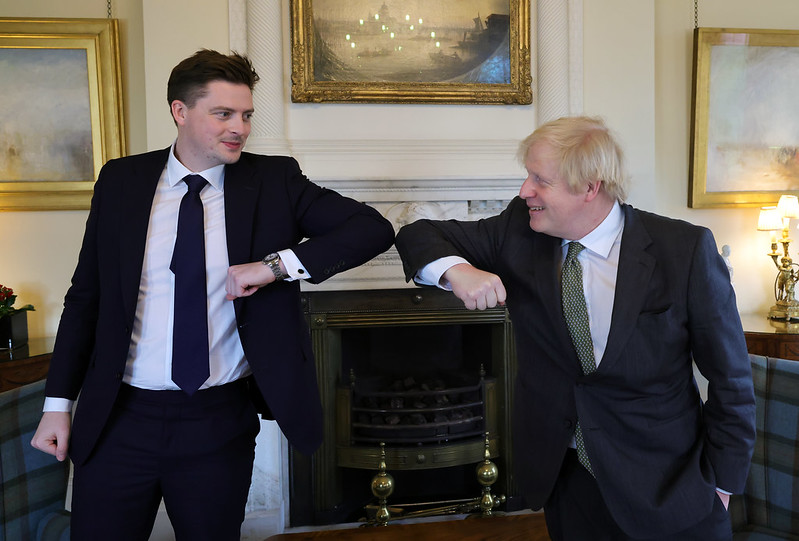There has recently been a surge of advertisements on Tik-Tok that broke the typical mould offered to men in their early twenties. Not dating apps or the latest ball shaver for once, but various ‘influencers’ launching campaigns on the scourge of ‘eco-anxiety’ and what we can do to combat it. It has become the latest project of the influencer Dr Alex George, better known for his stint on Love Island, and endlessly raising awareness (but only awareness) about Men’s Mental Health. When he’s not busy landlording, Dr Alex wants us to know that eco-anxiety caused by the climate crisis is real, valid and something that can be beaten by reducing our own carbon footprint. He has been paid by the energy giant E-ON to say this.
This isn’t really a story in and of itself, at this point it’s fairly clear that the upper limit of Alex’s public conception of politics is limited to endless campaigns to raise awareness without calls for change. And if he makes money doing so, all the better. Influencers have been deployed by huge corporations to both launder the image of Big Tobacco by promoting vaping products, while still promoting smoking cigarettes. It’s not a new advertising strategy, but it’s evidently perceived as an effective one.
Household emissions are of course a factor in the climate crisis, but not in the way ‘Positively Green‘ and E-ON’s collection of paid-up ‘activists‘ and ‘guerilla gardeners‘ would have you believe. One of them speaks at length (in a video unknowingly reminiscent of an old Mitchell and Webb sketch) on the need to say ‘bye to stand-by’ and limit the length of showers to three minutes. Of course, Britain’s housing stock is among the worst insulated in Europe, and one reason why E-ON customers have been choosing between heating and eating over winter. No amount of Granny turning her TV off standby and the wanton excess of the British public taking the occasional shower long enough for the water to get warm will change that fact.
Nowhere in these videos are viewers encouraged to insulate their homes, buy solar panels or a ground source heat pump – all things that would markedly reduce energy usage and CO2 output – because they could put a dent in EON’s record-breaking bottom line. But even if they did, it wouldn’t change the fact that their entire advertising strategy is merely theatre, they know any of their campaigns won’t make a dent into people’s energy bills, but they wish to present a caring public image. The same can be seen in their calls for a ‘rising block-tariff’ which subsidises consumption up to a certain level, and their customer service, which is so poor and punitive they were slapped down by the notoriously toothless energy regulator Ofgem.
It’s not a huge leap to assume that corporate interest in utilising the language and iconography of climate protests and mental health goes beyond purchasing a few million views on Tik-Tok.
None of this to say of course, that climate anxiety isn’t real. But that’s not the only anxiety that’s driven by companies like E-ON. Inflation, wage stagnation, and surging energy bills are meaning that people are left with increasingly less and less by the end of the month. One campaign doesn’t encapsulate all of the corporate greenwashing at play at present but it’s hard to escape the conclusion that a climate activist movement defanged in the popular consciousness by widespread corporate shilling is one that will only increase people’s anxieties, and ultimately serves the interests of the fossil fuel companies.
It’s doubtful that ‘eco-anxiety’ will land in quite the same way that the notion of a personal carbon footprint has done over the years after the initial advertising campaign from BP. But it is plain to see, as we are in America with natural gas, that the influencer economy will play a key part in how fossil fuel companies disseminate their agenda and obfuscate the issues.
There is a moral cost to this of course for those doing this grubby work, shilling for the fossil fuel companies while claiming to care about the climate is at best shitty and at worst actively evil. The real eco-anxiety emerging is that we’ll be made endlessly aware of climate breakdown and social issues by beautiful people in tall houses, but utterly paralysed by the profits of their corporate paymasters in doing anything to solve it.


